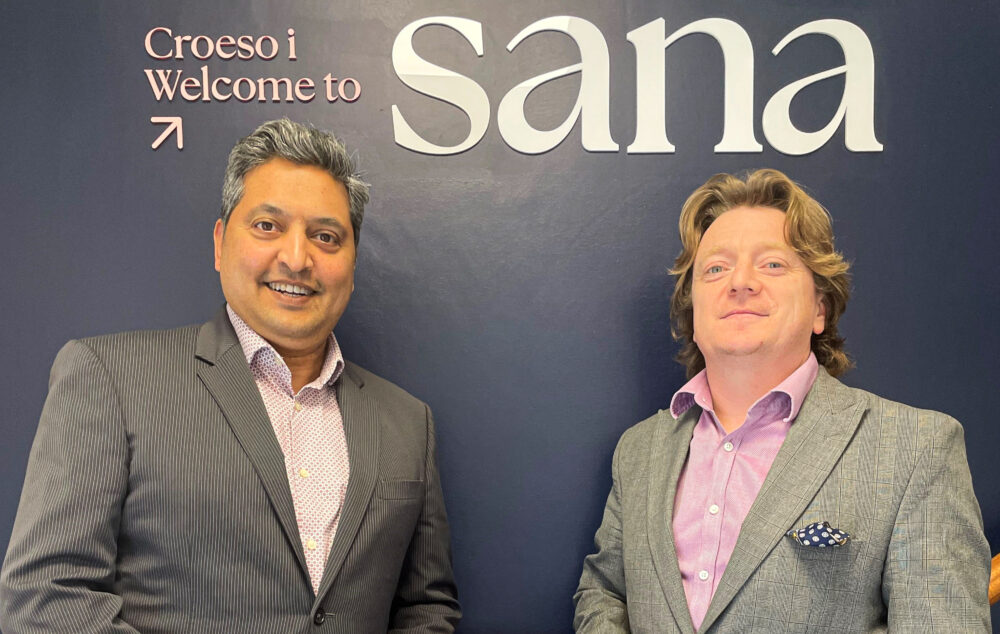National Eye Health Week: Swansea’s Sana hospital launches cataract patient information evenings

Mario Saldanha, founder and senior ophthalmic consultant at Sana, also shares his 10 top tips for cataract patients
This National Eye Health Week (September 18-24), Swansea’s specialist private hospital Sana is launching a series of free cataract information evenings to inform people about cataracts and the treatment options that are available to them.
The events will feature a talk given by the hospital’s ophthalmic surgeon. He will address how cataracts form, how to spot them, the process for accessing treatment, and how to choose the right treatment for you.
National Eye Health Week (NEHW) promotes the importance of good eye health and the need for regular eye tests for all. Eye tests are crucial for identifying cataracts, which affect 30 percent of people aged 65 or over.
Cataracts are a common eye condition that occurs when the normally clear lens inside the eye becomes cloudy or opaque. This interferes with the passage of light, leading to blurred or distorted vision. Cataracts typically develop slowly over time and can affect one or both eyes. They are more common in older adults but can occur at any age.
Sana is a private hospital located in Riverside Business Park, Swansea It was founded in March 2023, and prior to that was Eye Wales, which was located in SA1. As Sana, it now offers a range of surgical procedures, including lumps and bumps and hand conditions, but one of its flagship offerings is cataract surgery or lens replacement surgery with premium lenses not available on the NHS.
“Many patients come to us because they are unhappy with NHS waiting times and want a wider choice of lenses beyond the basic lens provided on the NHS,” says Mario Saldanha, founder and senior ophthalmic consultant at Sana. “Cataracts affect a huge portion of people as they get older, but many people are still ill-informed about their options. They have no idea that they can tailor their cataract surgery to what they need from their eyesight.
“Our free cataract information nights will promote understanding of the treatment options and of what to expect from the procedure. Many people are nervous about it, so we explain what happens in surgery. Following surgery, every single patient tells us they can’t believe how quick and painless it was. By holding these cataract information evenings, we hope to eliminate any fear, and educate people as to what they can actually achieve from their surgery.”
Sana offers the most comprehensive diagnostics available in the area and provides a range of lenses which can eliminate the need for glasses. They are selected based on what matters most to each patient.
“We ask our patients what they want from their vision,” says Mario. “Are they a bird watcher? Are they a bookworm? Are they on the computer a lot? Do they play golf? The answer to these questions potentially gives each patient their own need for their vision. We work closely with intraocular lens manufacturers to ensure that the specification and design of the lenses are optimised to our patients’ needs.”
Top Tips for Spotting and Tackling Cataracts
Mario Saldanha, founder and senior ophthalmic consultant at Sana, shares his top tips for spotting and tackling cataracts:
- Look out for the warning signs. If your eyesight is becoming cloudy or blurry, or you have become more sensitive to bright light, this could be a sign of cataracts. Other signs include seeing ‘halos’ around lights, seeing double, and colours becoming faded or yellowish.
- Get checked. Regular eye tests can catch cataracts early – but any time you spot some of the signs listed above, you should book an appointment with your GP or optician to have the issue investigated.
- Decide whether to go on the NHS waiting list or opt for private healthcare. The benefits of a private procedure include reduced or zero wait time and a choice of lenses.
- When choosing a provider, ask what diagnostic testing they have available. The more sophisticated the diagnostics, the more accurate your assessment. Sana’s diagnostic equipment includes Pentacam topographer and IOL Master.
- Ask what lens options are available – for example, at Sana you can have lenses that mean you don’t need glasses for distance and near vision.
- Visit the hospital and check out the hospital environment. Do you feel comfortable there? Is it friendly and welcoming?
- Ask what the procedure involves, and whether the provider can share patient testimonials with you.
- Discuss any possible side effects of the treatment so you know what to expect.
- Discuss recovery times and plan your life accordingly. Typical recovery times range from 2 to 6 weeks, during which time you may need to avoid driving, or take time off work.
- Ask about after care so you know how to look after your eyes following the operation.
The first patient cataract information night takes place on October 3, followed by November 7 and December 5 from 5pm – 7pm. You can book your free place by emailing hello@sana-health.co.uk or calling the hospital on 0333 9960 999.




